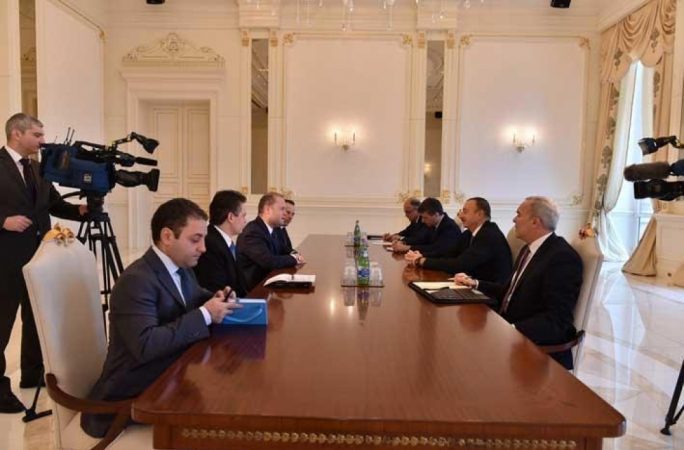In a letter sent to European Parliament today, Transparency International called on European Parliament President Antonio Tajani and other stakeholders to conduct an inquiry into possible bribery and influencing of members by the Azerbaijani government.
Over the last few years there have been many cases where authoritarian governments have been accused of meddling in the affairs of liberal democracies and elections. Examples include the investigation into and subsequent indictment of former Trump campaign chairman Paul Manafort, and the allegations of Russian influence in the Brexit Leave Campaign.
But there is another case that is not restricted to just one country, but rather suggests the infiltration of not just European institutions, but a number of Member States as well.
Just over a year ago, a group of investigative journalists at the OCCRP broke the story of the ‘Azerbaijani Laundromat’. They discovered the existence of a €2.9 billion slush fund that was being used to gloss over the troubling human rights record of the country, in multiple EU Member States, as well as the Council of Europe and UNESCO.
Through four shell companies registered in the UK, the Azerbaijani regime was found to be laundering money that was then used to pay off European politicians over a two-year period.
Several members of the Azeri ruling elite were also found to have held accounts at Pilatus Bank in Malta whose owner Ali Sadr Hasheminejad is now facing charges that carry a 125-year prison sentence in America.
When assassinated journalist Daphne Caruana Galizia first broke the news, Ali Sadr was caught by television cameras, hotfooting it through the back door of the bank, with bulging suitcases in hand. A private jet with no passengers then took off from Malta International Airport and headed to Baku.
Just 10 days later, VistaJet, the company who owned the plane in question, received €1 million in sponsorship by the Malta Tourism Authority – an astounding amount for a non-commercial airline, which the Malta Tourism Authority said it had not been informed of.
Further allegations were made against members of the Parliamentary Assembly of the Council of Europe (PACE) led to 13 members being expelled after evidence emerged of them accepting bribes and gifts from the Azerbaijani government.
A further investigation on members of the European Parliament by the Advisory Committee found seven members to be in breach of the code of conduct for failing to declare their trips and their financing.
In 2014, Prime Minister Joseph Muscat, his chief of staff Keith Schembri, then energy minister Konrad Mizzi, and the government’s head of communications Kurt Farrugia made an unannounced visit to Azerbaijan where they met with President Ilham Aliyev and other members of his government.
The relationship between Malta and Azerbaijan was pointed out in a Freedom Files 2017 report where it stated that “Malta is considered by Azerbaijani oligarchs as one of the ‘provinces’ of Azerbaijan”. The Freedom Files also highlighted Malta as one of the favoured locations for Azeri officials to keep their money.
Despite the European Parliament adopting a resolution on “corruption and human rights in third countries” in September 2017 that called for “an investigation into the behaviour of the Azerbaijani State” due to “attempts by Azerbaijan and other autocratic regimes…to influence European decision-makers through illicit means”, no investigation has commenced so far.
Transparency International said that given the widespread and systematic nature of the attempts to influence international bodies described in the independent PACE report, the European Parliament must conduct a similar investigation. Such an investigation could also review the safeguards the Parliament in place to protect itself from the undue influence of foreign governments.
“Given the widespread public concern about the documented attempts of authoritarian governments round the world to undermine democratic elections and institutions, and the upcoming European elections, such a review would be apposite and timely. We also note that conducting such a review is one of the European Parliament’s commitments under the UN Convention Against Corruption, which the European Union ratified in 2008,” the organisation said.
With European elections around the corner and the risk of undue influence from external sources, combined with the lack of processes in place to deal with such risks, Transparency International is calling on the European Parliament to take immediate action, in line with its commitment laid out under the UN Convention Against Corruption that the EU ratified in 2008.













